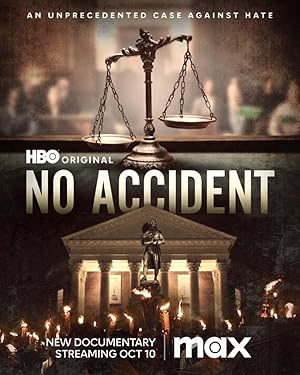No Accident (2023)

- HD 1080
- Runtime: 97m.
- Status: Released
1
- Languages: en
- Country: United States of America
- Director: Kristi Jacobson
- Production_studio: HBO Documentary Films, Catalyst Films, McGee Media, JustFilms / Ford Foundation, Topic Studios
- providers: Max, Max Amazon Channel
In the aftermath of the deadly "Unite the Right" rally in Charlottesville, Virginia, a civil lawsuit was filed against white nationalist leaders and organizations on behalf of plaintiffs who suffered injuries while peacefully counterprotesting. This documentary chronicles this seminal civil rights trial, exposing a broad network of conspirators and detailing the challenges of holding those leaders and organizations liable for their actions.